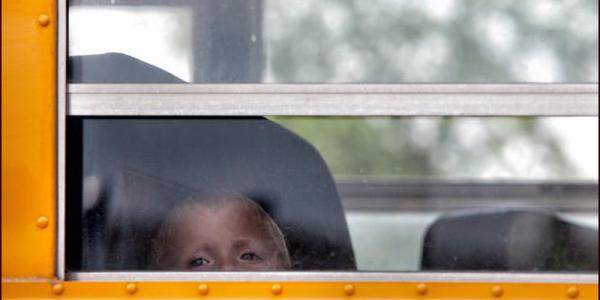“Class of ’27”: New Television Documentary Explores Issues Confronting America’s Rural Children and Families

Barb Fabre knows something about children. She has served as the Director of the White Earth Child Care for over 17 years and is nationally recognized for her work with Native American children in rural areas of the country. The White Earth Nation in rural Minnesota is where Barb and her husband have raised their children and are sharing the parenting duties of their grandchildren with their son. Over five years ago, Nathan became a single parent of two children, a 2 ½ year- old son and 6 month- old daughter. His then wife and mother of the children had become addicted to prescription drugs which led to heroin addiction, jail time and a choice to give up custody of her children. Barb recalls the hardest part of the ordeal was the months social services required Nathan to go to work and leave the children in the care of their mother, even though she was abusing drugs at the time.
Even with all the training and experience Barb had as a professional early childhood educator, she sought guidance from friends and colleagues on how to help her grandson understand why his Mom was gone and not coming back. At times his anger flares and he takes it out on the remaining parent and family members. Barb says it is hard to know what to say and she worries how this loss will affect both children, especially her grandson, since he remembers his Mom. Simply put, there is not a “how to” book on explaining the sickness of drug addition to children as young as Nathan’s and very few mental health counselors to help them understand. Given that currently 300 children on the reservation are in foster care due primarily to parental addiction to drugs, Barb feels very fortunate her family is together.
Barb’s story and the lives of children of the White Earth Nation are told in the documentary, Class of ‘27. Her story illustrates that life in rural America is not a one size fits all combination of the lives portrayed on the Walton’s, Little House on the Prairie, and Lassie. The documentary gives us a glimpse of the real lives of the children in three rural locations in our country. While the locations are different, the messages are the same; children in rural America are the forgotten ones in our country, poverty is sucking the life from communities and the families who live there, and drug addiction is the major cause of family dysfunction in many rural communities.
Owsley County, in eastern Kentucky is located 45 minutes from a 4 lane highway and with a population of 4,654 it is the second least populated county in the state. The major industries are the school district, a nursing home and the court house. Through the narration of Betsy Coomer, a Head Start teacher with 23 years of experience, and others, we come to know some of the children in her classroom. We hear about the dissolution of the families due to drug addiction and the toll hunger takes on the children as they are trying to learn. Betsy’s message to her children is “we are learning and you will be ready for kindergarten”, because she believes education is the only way out of the debilitating poverty that surrounds them and their families.
A migrant family from California allows us to follow their annual journey to Oregon where they are seasonal workers picking fruit 7 days a week with no guarantee they will be paid. Through the eyes of the teen age daughter and staff members of a migrant Head Start Center, we follow the younger children in the family as they attend the 9 week session. We see the bus arrive for the parents to place their still sleeping children on board at 5 AM and the bus deliver the children back to the living quarters at 5 PM, making it a long day for all. For most of the children this is the only school type activity they receive before entering kindergarten. The transformation of the teen is presented in a way that highlights the most important message in the entire documentary,” Give it all at your school and don’t let us be stepped on.”
Rural children are no different from other children in America, but the circumstances in which many find themselves are unique. The challenges associated with the relationship between rurality and the high percentages of families in poverty have largely been ignored when policies and budgetary decisions regarding early education, job training and social services have been made in Washington. It is not to say that poverty is unique to rural America, but it is fair to say that the solutions to moving families out of poverty in rural America are unique and have not been explored in an equitable manner.
Interested in the intersection of rural issues and early childhood?
Cathy Grace is gauging interest in forming an NAEYC Interest Forum to help the early childhood community understand the needs of rural children. Come to the interest forum’s exploratory meeting at the 2016 NAEYC Annual Conference in Los Angeles, or contact Cathy directly to express your interest.
How do I watch “Class of ’27”?
-
Watch Online
Click here to stream online September 14, 2016–December 12, 2016. Spanish language caption versions will also be available online. -
Website
For more information visit the WORLD Channel's website.
Cathy Grace, EdD, is the codirector of the Graduate Center for the Study of Early Learning at the University of Mississippi. She has worked in rural America over her 45-year career in the early childhood field. She previously served as the national early childhood policy director at the Children’s Defense Fund and has been engaged in child advocacy at the local, state, and regional levels. [email protected]